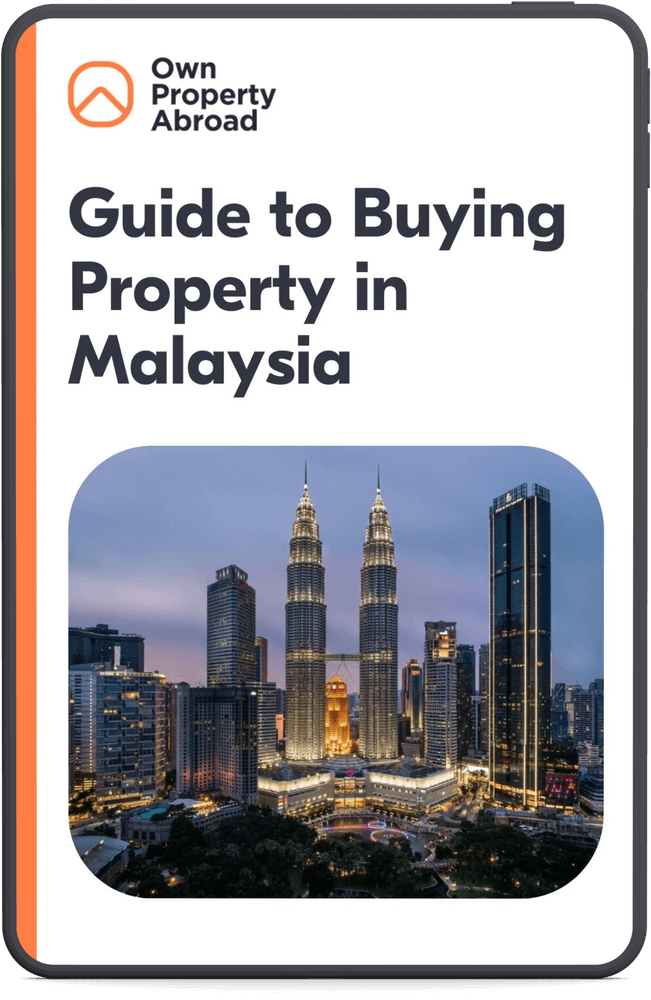What is Power of Attorney, and how does it work in Malaysia?
A Power of Attorney (POA) is a legal document that empowers a person (agent) to act on behalf of someone (principal). It is regulated by Act 424, known as the Power of Attorney Act Malaysia, a law that governs the creation, use, and revocation of Powers of Attorney in Malaysia; however, this law does not apply to Sabah and Sarawak. The Power of Attorney Act Malaysia provides a legal framework for individuals to appoint another person to act on their behalf, which is particularly useful when they cannot handle their affairs due to incapacity. The agent and principal must sign the POA, and a witness is usually required for it to be legally valid. It can be terminated by the principal through revocation of Power of Attorney in Malaysia, invalidated by a competent court, or end due to the agent’s inability to fulfill their duties. Power of Attorney in Malaysia is commonly used for various purposes, including:
- Management of property and financial affairs: An agent can handle tasks like buying or selling property, paying bills, managing investments, and opening or closing bank accounts.
- Medical decisions: A POA can authorize someone to make medical decisions on your behalf and access medical results, especially if you become incapacitated.
- Legal matters: An agent can represent you in legal proceedings, such as court cases or contract negotiations.
- Business operations: A POA can authorize someone to manage your business affairs and perform administrative tasks on your behalf.
Valuable insights and practical advice, distilled from years of expertise and real-world experience.


Why foreigners need a Power of Attorney for real estate transactions in Malaysia
Foreigners need Power of Attorney in Malaysia to pursue real estate transactions despite their absence. Although some real estate transactions can be done online, others typically require in-person interaction, including property inspection, document signing, and ownership transfer at the Land Registry Office. Having an agent handle these transactions is crucial, especially if you are not in Malaysia and cannot process them personally. Delays due to the foreigner’s absence can be avoided, ensuring that real estate transactions proceed accordingly and on time.
Types of Power of Attorney applicable to real estate transactions
Several kinds of Power of Attorney in Malaysia can be used for real estate transactions. Some of the most commonly used POAs are as follows:
- General Power of Attorney: This Power of Attorney in Malaysia grants the agent the authority to act on behalf of the principal in any matters permitted by state law. Under this agreement, the agent may be empowered to manage bank accounts, issue checks, sell property, oversee assets, and file taxes on behalf of the principal. This allows the agent to legally manage the principal’s finances and property, make financial decisions, and carry out transactions within the limits of the agreement.
- Specific Power of Attorney: Also known as Limited Power of Attorney due to its limited power, this is a legal document granting the agent authority to act on the principal’s behalf in particular matters or events. For instance, it may specify that the agent can only manage the principal’s retirement accounts. This type of POA can also be time-bound, such as valid for two years if the principal is abroad. The agent’s powers are restricted to what is outlined in the POA and cannot exceed those boundaries.
- Enduring Power of Attorney: Also known as Durable Power of Attorney, this document takes effect once signed and remains valid for the principal’s lifetime unless it is revoked. The document should state that the agent’s authority continues even if the principal becomes mentally incapacitated. Enduring POAs are commonly used because they allow the agent to manage the principal’s affairs efficiently and cost-effectively.
Steps to obtain a Power of Attorney for real estate in Malaysia as a foreigner
Obtaining a Power of Attorney in Malaysia as a foreigner for real estate transactions involves several steps. Below is the five-step guide you can follow.
Step 1: Choose a lawyer
Choosing a lawyer is essential in obtaining a Power of Attorney in Malaysia. Select a qualified lawyer with experience drafting such documents, ensuring the POA adheres to legal formalities.
Step 2: Determine the scope of authority
The next step is to determine the agent’s scope of authority. Several types of Powers of Attorney exist in Malaysia, each with a specified purpose. Decide on the specific powers you wish to grant your agent, including those to manage property, make financial decisions, handle legal matters, and make medical decisions. The duration of the POA must also be determined because such will determine the validity span. When obtaining a Power of Attorney (POA), it’s essential to tailor the document to your specific needs. Find a sample Power of Attorney Malaysia as a reference when establishing your POA.
Step 3: Gather the required documents
The documents required may vary depending on the type of power of attorney you are creating and the circumstances. Essential documents can include:
- Identification documents such as passports or identity cards as principal;
- Identification documents of the agent;
- Property documents if the POA relates to property;
- Other relevant documents (medical records, marriage, and birth certificates).
Valuable insights and practical advice, distilled from years of expertise and real-world experience.


Step 4: Draft the Power of Attorney
Writing the POA ensures clarity, which helps avoid arguments and confusion. Based on your instructions and the required legal formalities, the lawyer will draft the Power of Attorney in Malaysia, which also requires crucial involvement from your end as principal since you will be making the statements in the POA and clear communication with the lawyer to avoid errors in writing. When creating a Power of Attorney (POA), it’s essential to use a proper format. Research sample Power of Attorney Malaysia to use as a guide in establishing your POA.
Step 5: Sign and register the Power of Attorney
In Malaysia, the principal and agent must sign the Power of Attorney form in the presence of a witness. This document is usually signed before a notary public, but it can also be concluded before a magistrate, a land administrator, an advocate, or a commissioner for oaths. After signing the document, the Power of Attorney form must be registered with the appropriate Registration Office of the High Court in the region where it is executed, such as the High Court of Malaya in Kuala Lumpur or another High Court of Malaya in West Malaysia. The Senior Assistant Registrar handles Power of Attorney (POA) files. They maintain a register of deposited POAs and provide public access to these documents.
Registering the POA includes the following requirements:
- Two sets of the Power of Attorney documents: One original copy for personal safekeeping and a duplicate of the original document to be submitted and filed with the court.
- Translation: If the original document is in a language other than Malay or English, you must also submit a translation into Malay or English. This translation must be certified by a qualified interpreter or verified by a statutory declaration from someone who can translate the original language into Malay or English.
- Identification documents: Include passport or identity cards as requested.
Fees for Power of Attorney in Malaysia
Obtaining Power of Attorney in Malaysia requires payment of legal fees and other relevant fees for registration. Indicated below is a table of the fees for your reference.
| Type of fee | Cost |
|---|---|
| Legal fee | RM 200 ($45.12) to RM 500 ($113) per hour; or a fixed rate |
| Registration fee | RM 25 ($5.64) |
| Deposit | RM 10 ($2.26) |
| Fee per printed sheet | RM 2 ($0.45) |
Need help with Power of Attorney for property in Malaysia? We’ve got you covered!
Handling property transactions in Malaysia can be challenging, especially when legal steps like obtaining a Power of Attorney are involved. Our comprehensive ebook is designed to guide you through every part of the process, from managing documentation to finalizing the transaction, ensuring all legal requirements are properly handled. With the right knowledge, you can complete your property transaction smoothly and securely. Want personalized assistance? Leave your details below, or email us directly at [email protected].
Valuable insights and practical advice, distilled from years of expertise and real-world experience.


Frequently Asked Questions (FAQs)
Why would a foreigner need a Power of Attorney for real estate transactions in Malaysia?
A foreigner might need a Power of Attorney for real estate transactions he cannot process in Malaysia personally. If a foreigner is out of the country, real estate transactions can still be run by an agent vested with a Power of Attorney to transact on behalf of the foreigner.
Is a Power of Attorney issued abroad valid in Malaysia?
Yes, a Power of Attorney (POA) issued abroad can be valid in Malaysia. However, specific requirements must be met to ensure its validity. POAs issued abroad must be legalized by the relevant authorities in the country where they were issued. This process authenticates the document for use in Malaysia. Moreover, POAs issued abroad must comply with Malaysian laws and regulations.
What are the limitations of a Power of Attorney in Malaysia?
The limitations of a Power of Attorney in Malaysia are based on the authority vested by the principal to the agent written in the document. Moreover, the POA is limited by the duration of the agreement and can be revoked by the principal at any time. If the principal becomes mentally incapacitated and the POA does not have an enduring power clause, it may become invalid.
Can a foreigner revoke a Power of Attorney in Malaysia?
Yes, foreigners can revoke a Power of Attorney if they are the principal. The revocation of Power of Attorney in Malaysia is vested in the principal who granted it. Such revocation is done by creating a revocation letter revoking the POA.
What documents are required to create a Power of Attorney for a real estate transaction?
The documents required to create a Power of Attorney in Malaysia for a real estate transaction include the following: Identification documents such as passports or identity cards for the principal, identification documents for the agent, property documents if the POA relates to property, and other relevant documents (medical records, marriage, and birth certificates).



